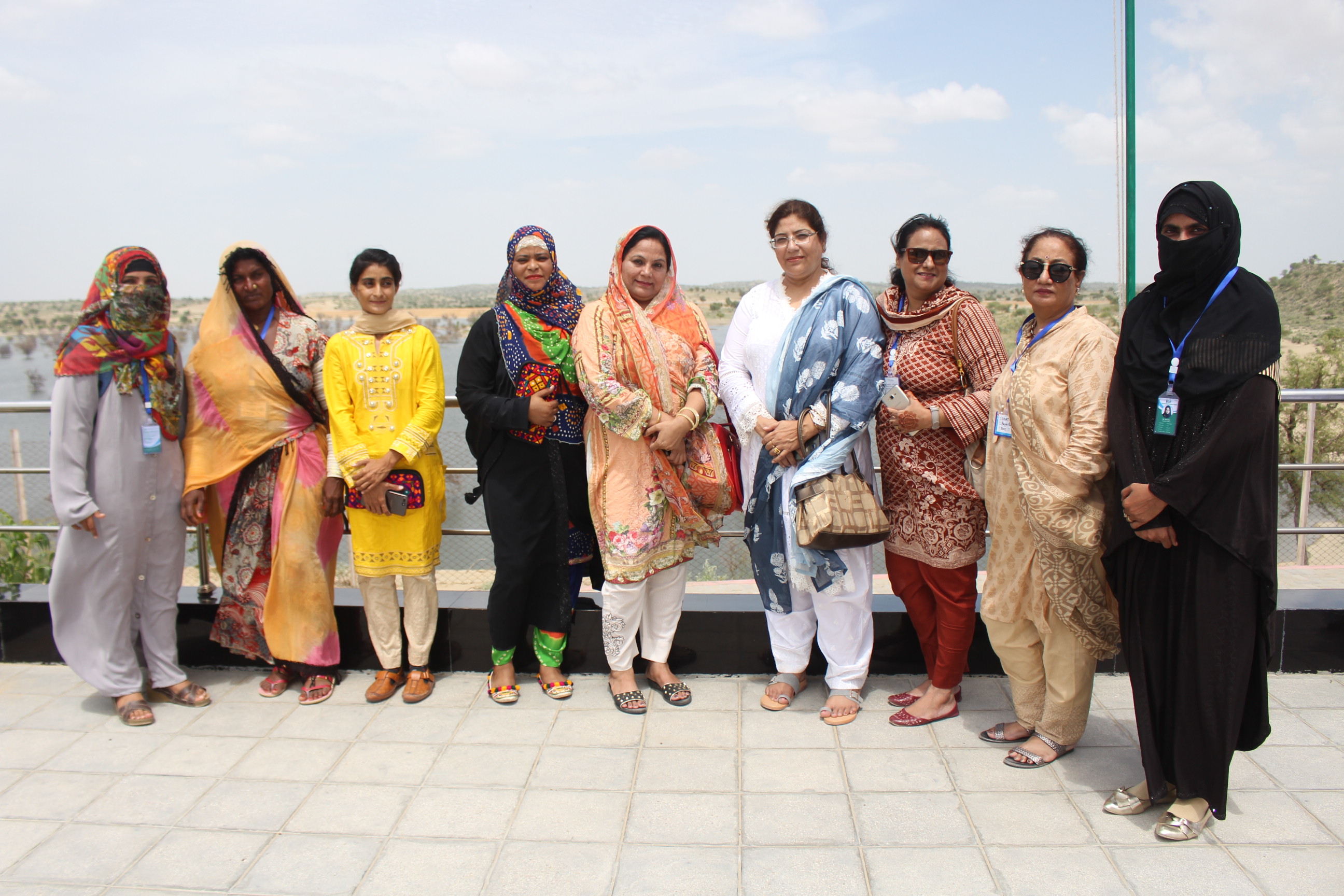District Development Association Tharparkar (DDAT) is an indigenous non-governmental organization that has been working as a humanitarian and development organization since 1992 in Mirpurkhas, Umerkot, and Tharparkar districts of Sindh, Pakistan. DDAT has been actively engaged in implementing multisectoral projects focused on education, school and community WASH (Water, Sanitation, and Hygiene), rainwater harvesting, GBV/Protection, Food Security and nutrition (FNS), livelihood development, alternative energy solutions, climate change adaptation, and humanitarian response.
The story of DDAT began in 1992 when a group of young development professionals, social workers, and human rights activists identified gaps in rural and urban development and sought to build a bridge of cooperation between urban Sindh and the remote villages of Tharparkar, Umerkot, and Mirpurkhas. Registered under the Directorate of Voluntary Social Welfare Agencies (Registration and Control) Ordinance 1961 (XLVI of 1961) of the Government of Sindh.
DDAT has extensive experience in humanitarian response, particularly in disaster management, including earthquakes, cyclones, droughts, fire incidents, floods, and heavy rains. The organization has specific expertise in the distribution of food items (FIs) and non-food items (NFIs) during emergencies, cash transfer and voucher programs, the provision of safe drinking water, and rural sanitation initiatives.s


Vision
Empowered and resilient rural communities in Sindh, thriving with dignity, equity, and sustainable livelihoods.
MISSION
DDAT enables inclusive development by bridging gaps between resources and communities. We foster locally-led solutions that strengthen livelihoods, enhance climate resilience, and empower people to drive sustainable progress
SCOPE OF WORK
DDAT has executed multi-sectoral projects that address critical needs in Education, School and Community WASH (Water, Sanitation, and Hygiene), Rainwater Harvesting, Menstrual Hygiene Management, Food and Nutrition Security (FNS), Livelihood Development, Climate Change Adaptation, and Humanitarian Response.
NETWORKS & AFFILIATION
DDAT is an active member of multiple networks, including:
- Pakistan Development Alliance (PDA)
- National Humanitarian Network (NHN).
- REAT Network
CORE VALUE
- Respect for human dignity and cultural sensitivity.
- Gender equality and inclusivity.
- Non-discrimination and “Do No Harm” principles.
TARGET GROUP
DDAT primarily focuses on marginalized communities, including:
- Religious minorities and Scheduled Caste Indigenous Communities.
- Women and children in vulnerable conditions.
- Other disadvantaged and underserved populations.
DDAT’s APPROACH TO COMMUNITY RESILIENCE
DDAT has built a proven track record in both emergency response and sustainable development across multiple sectors. With extensive experience managing crises from the 1999 Cyclone to the 2010-11 floods, our humanitarian work in WASH (providing safe drinking water, sanitation facilities, and hygiene education) and emergency distributions (food/non-food items, cash transfers) forms the foundation for long-term community transformation. Beyond crisis response, we drive systemic change through livelihood programs (skill development, business growth, and market linkages), education initiatives (focused on out-of-school children enrollment and alternative learning solutions), and climate-resilient water security systems (including rainwater harvesting and sustainable management). All interventions prioritize inclusion, with special attention to disability access, gender equity, and climate adaptation. Our strategic value lies in this integrated approach – combining emergency response with development solutions, and leveraging partnerships with development agencies, government bodies, and donors to create measurable, lasting impact at scale. This multi-sector model ensures communities don’t just recover from crises, but develop the tools and systems to build self-reliant futures.
THEMATIC AREAS
DDAT implements its humanitarian, development, and capacity-building initiatives through the following thematic areas:
WASH (SDG 6)
DDAT’s WASH programs provide sustainable water solutions through rainwater harvesting systems and innovative water management approaches. We implement rural sanitation initiatives and hygiene awareness campaigns that transform community health practices while addressing water scarcity challenges in arid regions.
Food Security & Nutrition (SDG 2)
The food security and nutrition interventions promote climate-resilient agriculture, wild food preservation, and livestock development. These programs enhance household nutrition while building adaptive capacity against droughts and climate shocks through smart farming techniques and diversified food sources.
Livelihoods & Economic Resilience
Livelihood development initiatives focus on creating sustainable economic opportunities through vocational training, micro-enterprise support, and market linkage programs. We equip communities with income-generating skills and connect producers to value chains to reduce poverty and foster self-reliance.
Education (SDG 4)
Education programs prioritize inclusive learning opportunities, with special emphasis on enrolling out-of-school children and improving educational quality. Our approach includes establishing child-friendly schools, training teachers, and advocating for girls’ education through alternative learning solutions.
DRR & Climate Adaptation (SDG 13)
Disaster risk reduction and climate adaptation work combines emergency response with long-term resilience building. We implement anticipatory action systems, community-based preparedness programs, and post-disaster rehabilitation that help vulnerable populations withstand multiple hazards.
Cross-Cutting Approaches
Cross-cutting approaches strengthen community governance through capacity building of local institutions like VDOs and SMCs. Our rights-based advocacy promotes inclusive development while health initiatives integrate with nutrition and WASH programs for comprehensive wellbeing.

